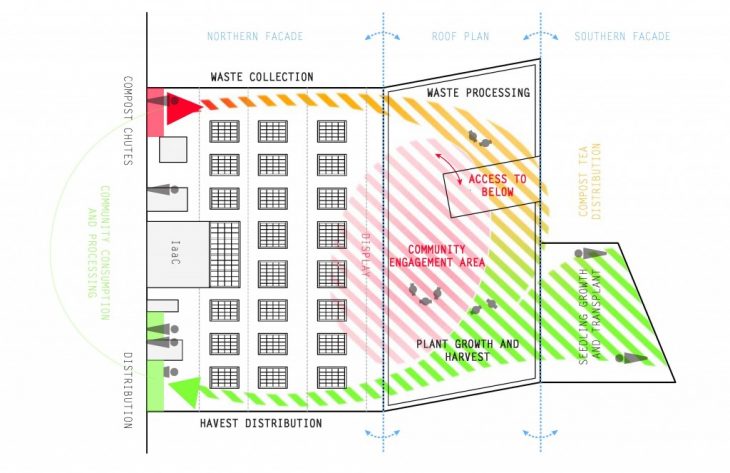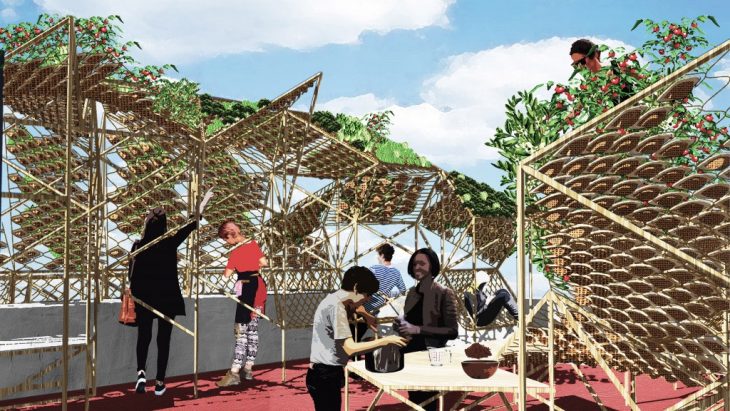The purpose of our project is to investigate the implementation of food production in an urban landscape, specifically utilizing the envelope of IaaC as our site. We performed a taxonomy through contextual research on the current food system, consumption of crop output, and production of organic waste in order to consider possible interpretations of food growth and processing of organic waste that could allow us to establish a circular food system interdependent on its outputs. These outputs include the ability to reutilize organic waste in order to integrate it into a vermicomposting system, as a material source for vessel construction, and an alternate source for seeds. One of our main objectives is to not only provide an infrastructure for urban crop yield but to also construct a social infrastructure in which the awareness of food production and consumption is brought into the epicenter of physical and social space. To do so, we have been developing a program which involves several actors including the IaaC community, local participants, and to a greater extent, users who participate in the growth of food products and data on a global scale.

We are designing programming into the project to emphasize the role of community. This is a major component in attempting to design a closed loop system that not only brings the processes of food close to each other but also to people. People are currently detached from the life of their food products until they pick them at a market. We want to engage people at every food process from production to distribution. Particularly in the production processes, people from the community around IaaC would be part of the plants’ lives from seedling, to nourishing it, to keeping its “space” well maintained. At the IaaC garden, people can engage with transplanting seedlings into their vessels, making sure the plants have been fed water and nutrients, cleaning any plant debris, harvesting plants, as well as other waste processes on site. Others could also partake in the growing and harvesting of food by taking vessels home or coming to the site for harvesting/market events. All people engaged in the project would have many opportunities to be with members of their community, while simultaneously being connected online.
The digital data component is essential to connecting each individual to the specific needs and holistic health of their plant. The Smart Citizen kit and other accessory sensors will quantify and collect relevant data. In understanding watering habits, nutrient needs, sunlight conditions, and other facets of plant (life), the individual may also glean a more robust understanding of agriculture and its relation to daily and annual consumption. (Caring for one’s own plant is drastically different from the current food system of overproduction…..explain more?)

Technology will also connect local growers to other individuals; the local plant-growing community as a whole; Iaac and the global FabLab community; the local community, inclusive of people without vessels, (in IaaC’s case, Poblenou). An app for a smartphone will act as the primary technological interface. These social entities may use the app to (digitally or face-to-face, e.g. an event in the community garden) share advice, source physical labor, and provide encouragement and accountability.
Such functions are essential to each individual’s understanding of the marriage between nutritional, sustainable food production and the prosperity of the (global) community.
Students: Becky baierwick, Jessica Sved, Sofia Chavez Cruz
Faculty: Mathilde Marengo
Teaching Assistant: Johana Monroy
